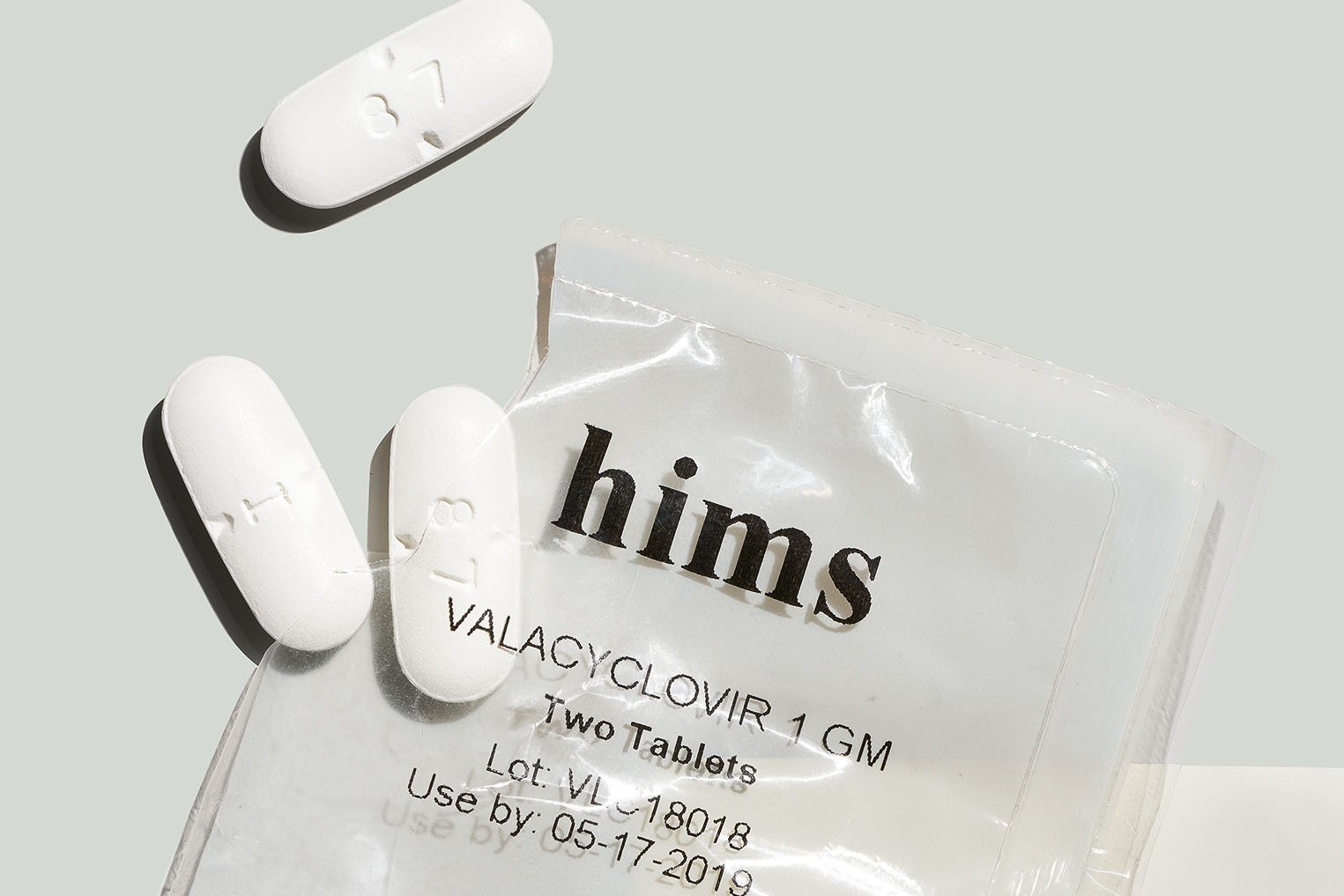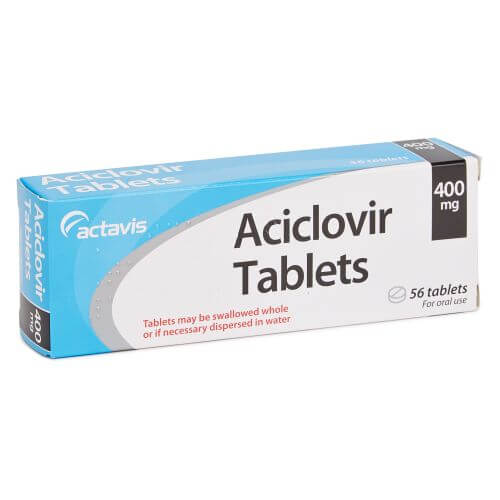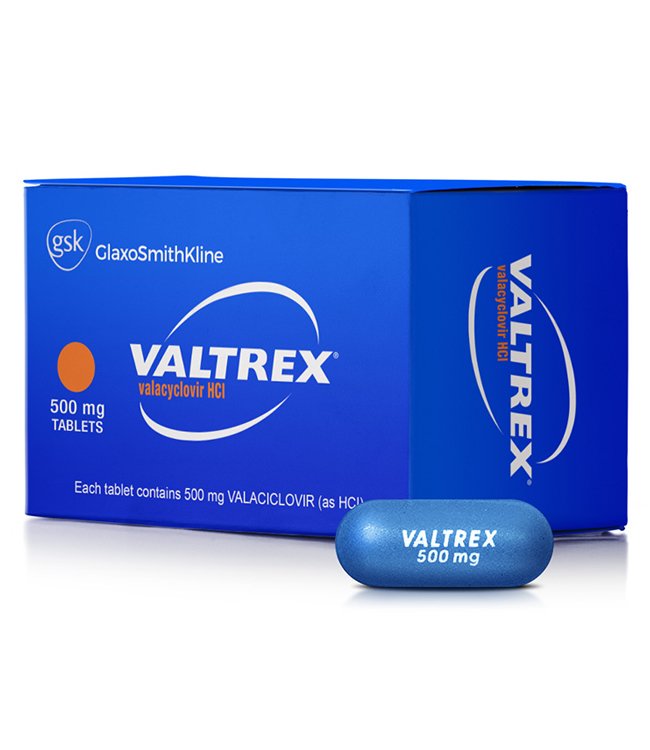What Other Drugs Will Affect Acyclovir
Acyclovir can harm your kidneys, especially if you also use certain medicines for infections, cancer, osteoporosis, organ transplant rejection, bowel disorders, high blood pressure, or pain or arthritis .
Other drugs may interact with acyclovir, including prescription and over-the-counter medicines, vitamins, and herbal products. Tell your doctor about all your current medicines and any medicine you start or stop using.
Acyclovir May Interact With Other Medications
An interaction is when a substance changes the way a drug works. This can be harmful or prevent the drug from working well. To help prevent interactions, your doctor should manage all of your medications carefully. Be sure to tell your doctor about all medications, vitamins, or herbs youre taking.
To find out how this drug might interact with something else youre taking, talk to your doctor or pharmacist.
Disclaimer: Our goal is to provide you with the most relevant and current information. However, because drugs interact differently in each person, we cannot guarantee that this information includes all possible interactions. This information is not a substitute for medical advice. Always speak with your healthcare provider about possible interactions with all prescription drugs, vitamins, herbs and supplements, and over-the-counter drugs that you are taking.
This drug comes with several warnings.
Mechanism Of Action Of Aciclovir
To become effective, aciclovir must first be changed to aciclovir monophosphate by an enzyme that is only found in viruses, called thymidine kinase . It is then converted to its active triphosphate form by human enzymes found inside the cells.
CMV does not produce thymidine kinase so the antiviral activity of aciclovir in CMV infections is poor.
Aciclovir triphosphate is the active form of the drug. It reduces the production of viral DNA by competing with a natural compound, deoxyguanosine triphosphate, for the viral DNA polymerase enzyme. Incorporation of AT into the viral DNA completely prevents the synthesis of new DNA.
Viral DNA polymerase binds 1030 times more strongly to AT than the cellular DNA polymerase. This means aciclovir is not toxic.
Unfortunately, only about 1520% of the dose of aciclovir is absorbed through the gut wall, which means it must be taken frequently as it only active for two or three hours in the bloodstream.
Recommended Reading: When Is It Safe To Have Sex After Herpes Outbreak
Using Valacyclovir To Treat A Primary Outbreak Of Cold Sores
Valacyclovir is also used to treat primary outbreaks of cold sores, or oral herpes. The standard dosage of valacyclovir for managing a primary oral herpes outbreak is 2,000 mg every 12 hours for one day .
During a particularly severe or persistent outbreak, your doctor may recommend adjusting your valacyclovir dose or extending the dosage to provide greater relief. Follow your doctors advice and instructions for the best results from valacyclovir and other antiviral medication.
Patients With Renal Impairment

Dosage recommendations for adult patients with reduced renal function are provided in Table 1. Data are not available for the use of VALTREX in pediatric patients with a creatinine clearance less than 50 mL/min/1.73 m2.
|
Indications |
Read Also: Is It Hard To Date With Herpes
Which Drugs Or Supplements Interact With Acyclovir
Acyclovir may decrease levels of phenytoin or valproic acid . Probenecid may increase acyclovir serum levels by decreasing renal excretion of acyclovir. Acyclovir may increase serum levels of theophylline .
Combining acyclovir with cidofovir , amphotericin B or other drugs that reduce kidney function may increase harmful effects on the kidney.
Using Valacyclovir To Treat A Primary Outbreak Of Genital Herpes
Valacyclovir can be extremely helpful for treating an initial herpes outbreak. Used early, it acts to suppress the virus and prevent it from multiplying, providing relief from the physical symptoms of a herpes outbreak and helping you recover faster.
Because primary herpes outbreaks tend to be the most intense experience infected people will have with the virus, treatment involves a relatively high dose of valacyclovir.
The standard dose of valacyclovir for an initial outbreak of genital herpes is 1,000 mg twice a day. This is typically continued over a 10-day period to continually suppress the virus and help the lesions caused by the viral infection to close and heal.
If you believe you may experiencing the first signs of a genital herpes outbreak, its important to see your doctor as soon as possible about treatment options. Valacyclovir is most effective if its taken as early as possible during an outbreak.
Your doctor may also recommend the use of pain relief medication to manage the other physical symptoms of a primary herpes outbreak.
Also Check: Can People With Herpes Have Kids
What Are Side Effects Associated With Using Acyclovir
Common side effects or health problems may include:
- Oral medication
- Severe allergic reaction
This is not a complete list of side effects and other serious side effects or health problems may occur as a result of the use of this drug. Call your doctor for medical advice about serious side effects or adverse reactions. You may report side effects or health problems to FDA at 1-800-FDA-1088.
Management Of Sex Partners
The sex partners of persons who have symptomatic genital herpes can benefit from evaluation and counseling. Symptomatic sex partners should be evaluated and treated in the same manner as patients who have symptomatic genital herpes. Asymptomatic sex partners of patients who have symptomatic genital herpes should be asked about a history of genital symptoms and offered type-specific serologic testing for HSV-2. For partners without genital herpes, no data are available on which to base a recommendation for PEP or PrEP with antiviral medications or that they would prevent acquisition, and this should not be offered to patients as a prevention strategy.
Read Also: Can You Get Tested Herpes Without Outbreak
Before Taking This Medicine
You should not take this medicine if you are allergic to acyclovir or valacyclovir . You should not take acyclovir buccal tablets if you are allergic to milk proteins.
To make sure this medicine is safe for you, tell your doctor if you have:
-
kidney disease or
-
a weak immune system .
Tell your doctor if you are pregnant or breastfeeding.
Herpes can be passed to your baby during childbirth if you have a genital lesion when your baby is born. If you have genital herpes, it is very important to prevent herpes lesions during pregnancy. Take your medicine as directed to best control your infection.
It may not be safe to breastfeed while using this medicine. Ask your doctor about any risk.
Acyclovir should not be given to a child younger than 2 years old.
Suppressive Therapy For Recurrent Hsv
Suppressive therapy reduces frequency of genital herpes recurrences by 70%80% among patients who have frequent recurrences . Persons receiving such therapy often report having experienced no symptomatic outbreaks. Suppressive therapy also is effective for patients with less frequent recurrences. Long-term safety and efficacy have been documented among patients receiving daily acyclovir, valacyclovir, and famciclovir . Quality of life is improved for many patients with frequent recurrences who receive suppressive therapy rather than episodic treatment . Providers should discuss with patients on an annual basis whether they want to continue suppressive therapy because frequency of genital HSV-2 recurrence diminishes over time for many persons. However, neither treatment discontinuation nor laboratory monitoring is necessary because adverse events and development of HSV antiviral resistance related to long-term antiviral use are uncommon.
Valacyclovir 500 mg orally 2 times/day for 3 daysOR
Valacyclovir 1 gm orally once daily for 5 days
*Acyclovir 400 mg orally 3 times/day is also effective, but are not recommended because of frequency of dosing.
Also Check: How Long After Outbreak Is Herpes Contagious
How Much Valacyclovir Should You Take For A Recurrent Genital Herpes Outbreak
After the primary outbreak, genital herpes enters a latent stage. During this period, the virus lays dormant in the body , with no clear symptoms or signs of an infection.
Over time, many people with genital herpes will experience recurrent outbreaks of the virus that cause herpes sores to develop. Outbreaks affect people with HSV-1 and HSV-2, although they tend to be more common in people with the HSV-2 type of the herpes virus.
Recurrent outbreaks are usually less intense than the initial outbreak. Most people only notice the development of herpes sores on the genitals, with few or none of the flu-like symptoms that can make a primary outbreak so unpleasant.
During a recurring outbreak, you normally wont need to take as much as you did for the primary outbreak. A standard valacyclovir dosage for recurrent genital herpes outbreaks is 500 mg twice per day for three days.
If you have particularly severe genital herpes outbreaks or the herpes sores you develop during an outbreak take longer than normal to recover, your doctor may adjust your dosage to provide extra relief from symptoms and faster healing. In any case, follow your doctors instructions.
Whats The Difference Between The Different Aciclovir Dosages

There are multiple different Aciclovir dosages that are used to treat a range of infections and conditions. You can find out more about what this prescription treatment can do on our What Is Aciclovir Used For? page.
There are three main Aciclovir doses that are available in tablet or capsule form: 200mg, 400mg and 800mg.
There are also other different forms of Aciclovir: creams, oral suspension , or injection. Injections are usually only done in a hospital.
Here at The Independent Pharmacy, we offer Aciclovir 400mg tablets. These can be used to treat an outbreak treatment or as ongoing suppression treatment for genital herpes.
Below you can find some more information about the different Aciclovir dosages available:
Also Check: What To Do If You Have Genital Herpes
To Use Buccal Acyclovir Follow These Steps:
If the delayed-release buccal tablet comes off within the first 6 hours of application, reapply the same tablet. If it still will not stick, then apply a new tablet. If you accidentally swallow the tablet within the first 6 hours of application, drink a glass of water and place a new tablet on your gum. If the tablet falls off or is swallowed 6 or more hours after application, do not apply a new tablet until your next regular time.
What Should I Know About Storage And Disposal Of This Medication
Keep this medication in the container it came in, tightly closed, and out of reach of children. Store it at room temperature and away from excess heat and moisture .
It is important to keep all medication out of sight and reach of children as many containers are not child-resistant and young children can open them easily. To protect young children from poisoning, always lock safety caps and immediately place the medication in a safe location â one that is up and away and out of their sight and reach.
Unneeded medications should be disposed of in special ways to ensure that pets, children, and other people cannot consume them. However, you should not flush this medication down the toilet. Instead, the best way to dispose of your medication is through a medicine take-back program. Talk to your pharmacist or contact your local garbage/recycling department to learn about take-back programs in your community. See the FDA’s Safe Disposal of Medicines website for more information if you do not have access to a take-back program.
Also Check: What Causes Herpes On Your Lips
How To Use Acyclovir
Take this medication by mouth with or without food as directed by your doctor, usually 2 to 5 times a day. Drink plenty of fluids while taking this medication unless your doctor directs you otherwise.
If you are using the liquid form of this medication, shake the bottle well before each dose. Carefully measure the dose using a special measuring device/spoon. Do not use a household spoon because you may not get the correct dose.
This medication works best when started at the first sign of an outbreak, as directed by your doctor. It may not work as well if you delay treatment.
Dosage is based on your medical condition and response to treatment. In children, dosage is also based on weight.
This medication works best when the amount of drug in your body is kept at a constant level. Take this drug at evenly spaced intervals. To help you remember, take it at the same times each day.
Continue to take this medication until the full prescribed amount is finished. Do not change your dose, skip any doses, or stop this medication early without your doctor’s approval.
Tell your doctor if your condition persists or worsens.
Usual Adult Dose For Herpes Simplex
Treatment of First Episode of Genital Herpes:200 mg orally every 4 hours 5 times a day for 10 days 400 mg orally 3 times a day for 5 to 10 days Severe Disease or Complications Requiring Hospitalization:5 mg/kg IV every 8 hours for 5 days 5 to 10 mg/kg IV every 8 hours for 2 to 7 days or until clinical improvement is observed, followed by oral antiviral therapy to complete at least 10 days of total therapy Episodic Therapy: Effective treatment requires therapy initiation within 1 day of lesion onset or during the prodrome preceding an episode/recurrence200 mg orally every 4 hours 5 times a day for 5 days 400 mg orally 3 times a day for 5 days OR 800 mg orally 2 times a day for 5 days OR 800 mg orally 3 times a day for 2 days
You May Like: At Home Test For Herpes
Important: How To Use This Information
This is a summary and does NOT have all possible information about this product. This information does not assure that this product is safe, effective, or appropriate for you. This information is not individual medical advice and does not substitute for the advice of your health care professional. Always ask your health care professional for complete information about this product and your specific health needs.
Avoid The Following While You Are Using Acyclovir Buccal Delayed
- Do not chew gum, touch, or press the buccal tablet after it has been applied.
- Do not wear upper dentures.
- Do not brush your teeth until it dissolves. If your teeth need to be cleaned while the tablet is in place, rinse the mouth gently.
Shake the suspension well before each use to mix the medication evenly.
Your symptoms should improve during your treatment with acyclovir. Call your doctor if your symptoms do not improve or if they get worse.
Take or use acyclovir until you finish the prescription, even if you feel better. If you stop taking acyclovir too soon or skip doses, your infection may not be completely treated or may become more difficult to treat. The delayed-release buccal tablet is applied as a one-time dose.
Also Check: Where To Get Tested For Herpes
How Should This Medicine Be Used
Acyclovir comes as a tablet, a capsule, and a suspension to take by mouth. It also comes as a delayed-release buccal tablet to apply to the upper gum of the mouth. The tablets, capsules, and suspension are usually taken with or without food two to five times a day for 5 to 10 days, starting as soon as possible after your symptoms begin. When acyclovir is used to prevent outbreaks of genital herpes, it is usually taken two to five times a day for up to 12 months. The delayed-release buccal tablet is usually applied with a dry finger as a one-time dose within 1 hour after itching, redness, burning or tingling cold sore symptoms begin but before the cold sore appears. Take or use acyclovir at around the same time every day. Follow the directions on your prescription label carefully, and ask your doctor or pharmacist to explain any part you do not understand. Take or use acyclovir exactly as directed. Do not take or use more or less of it or take it more often or for a longer time than prescribed by your doctor.
Do not chew, crush, suck, or swallow the delayed-release buccal tablets. Drink plenty of liquids, if you have a dry mouth while using the delayed-release buccal tablets.
What Other Drugs Interact With Acyclovir

If your doctor has directed you to use this medication, your doctor or pharmacist may already be aware of any possible drug interactions and may be monitoring you for them. Do not start, stop, or change the dosage of this medicine or any drug before seeking medical advice from your doctor, healthcare provider or pharmacist first. To do so may result in serious consequences or side effects.
Severe Interactions of Acyclovir include:
- There are no severe interactions from the use of acyclovir.
Serious Interactions of Acyclovir include:
Don’t Miss: How Many Types Of Herpes Viruses Are There
Treatment Of Primary Infection
Antiviral therapy is recommended for an initial genital herpes outbreak, especially if the patient has systemic symptoms or is immunocompromised.2 Oral acyclovir is effective in reducing symptoms1. Intravenous administration may be required in immunocompromised patients and those with severe disseminated infection.1 Topical acyclovir reduces the duration of viral shedding and the length of time before all lesions become crusted, but this treatment is much less effective than oral or intravenous acyclovir.1
| Symptom/sign |
|---|